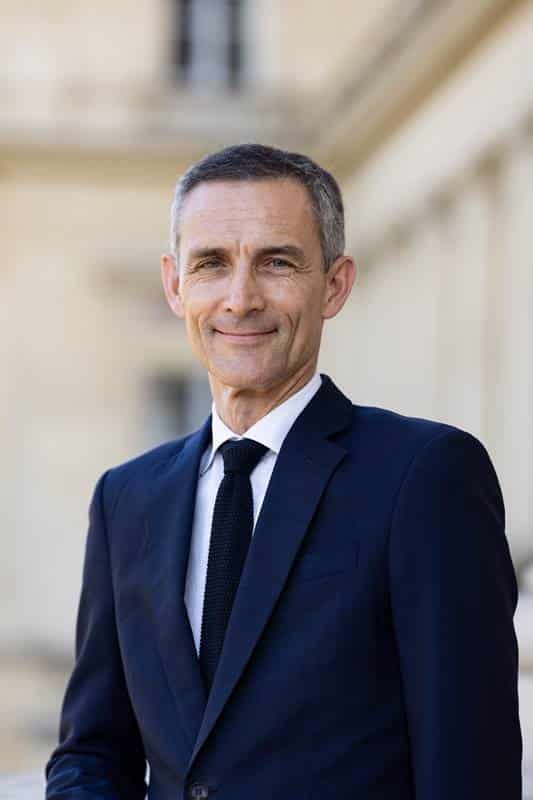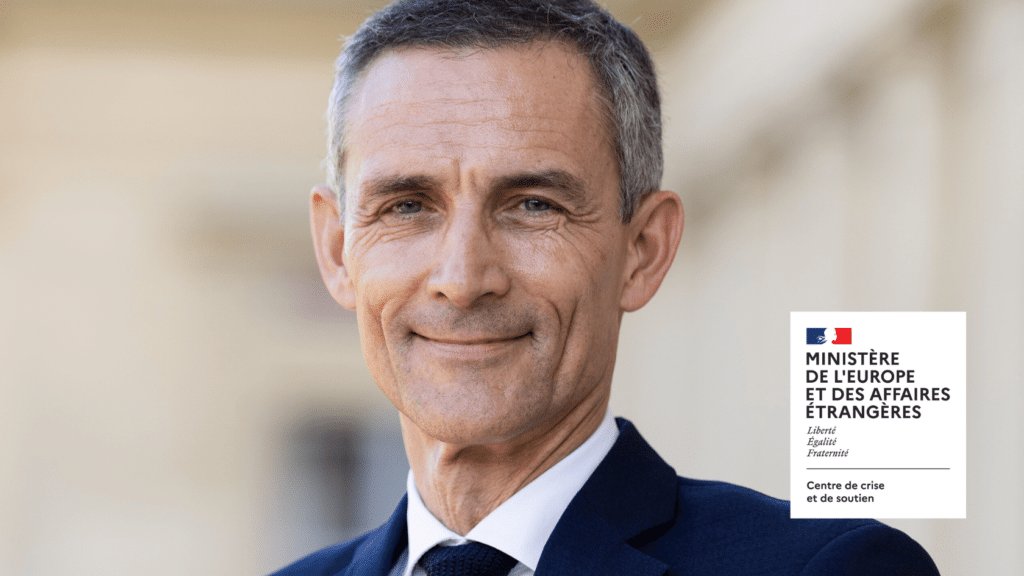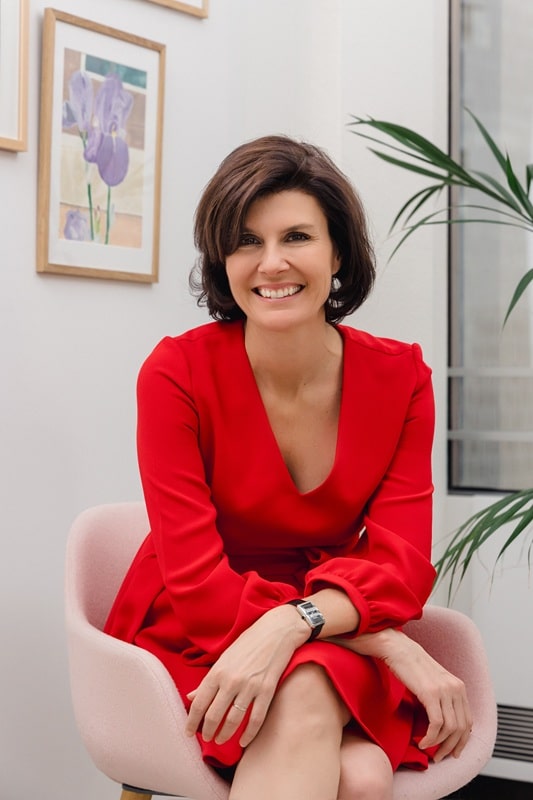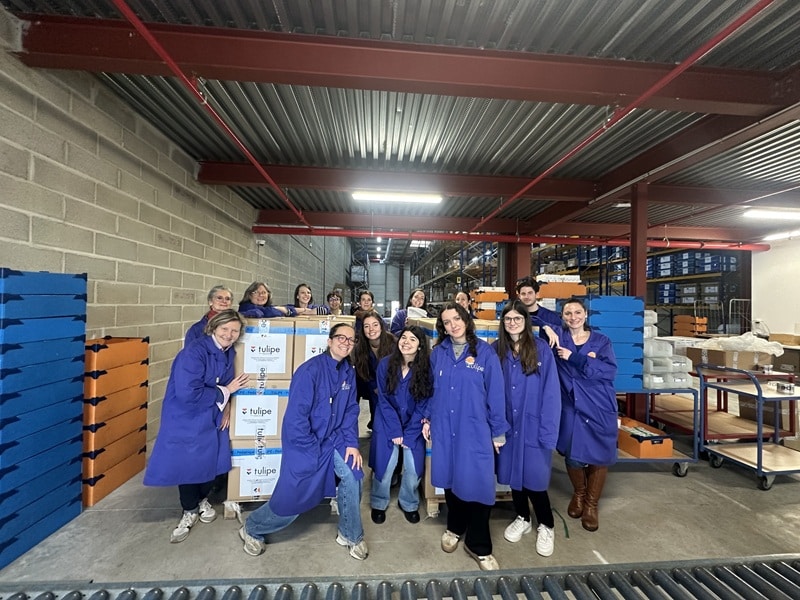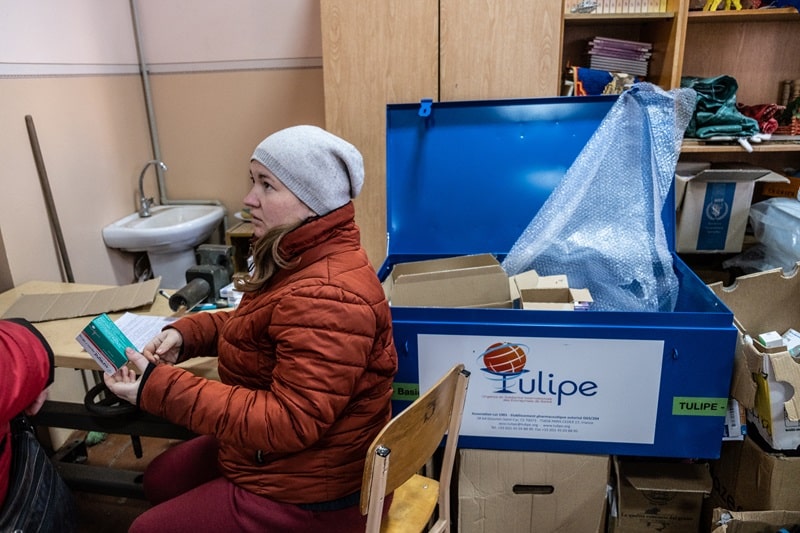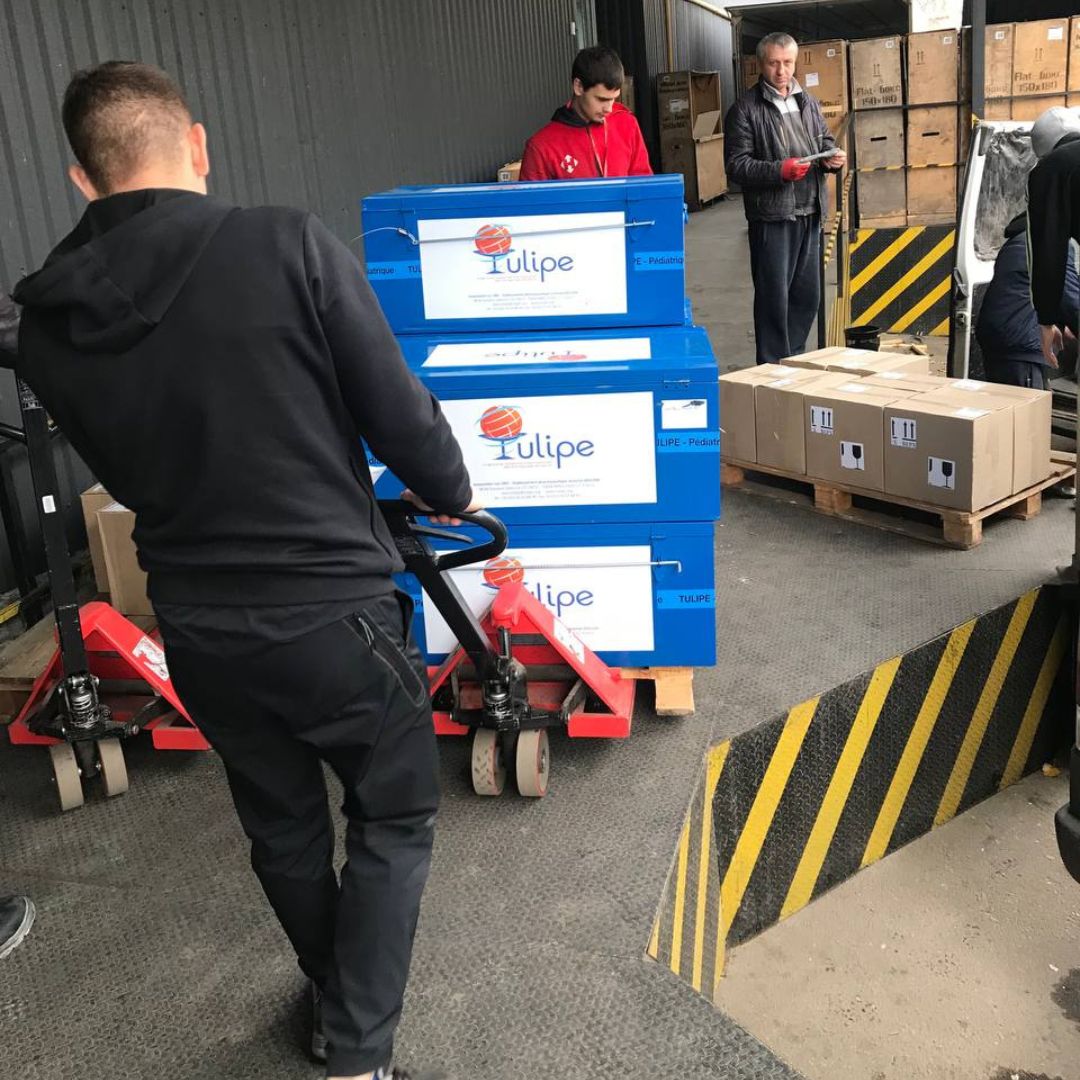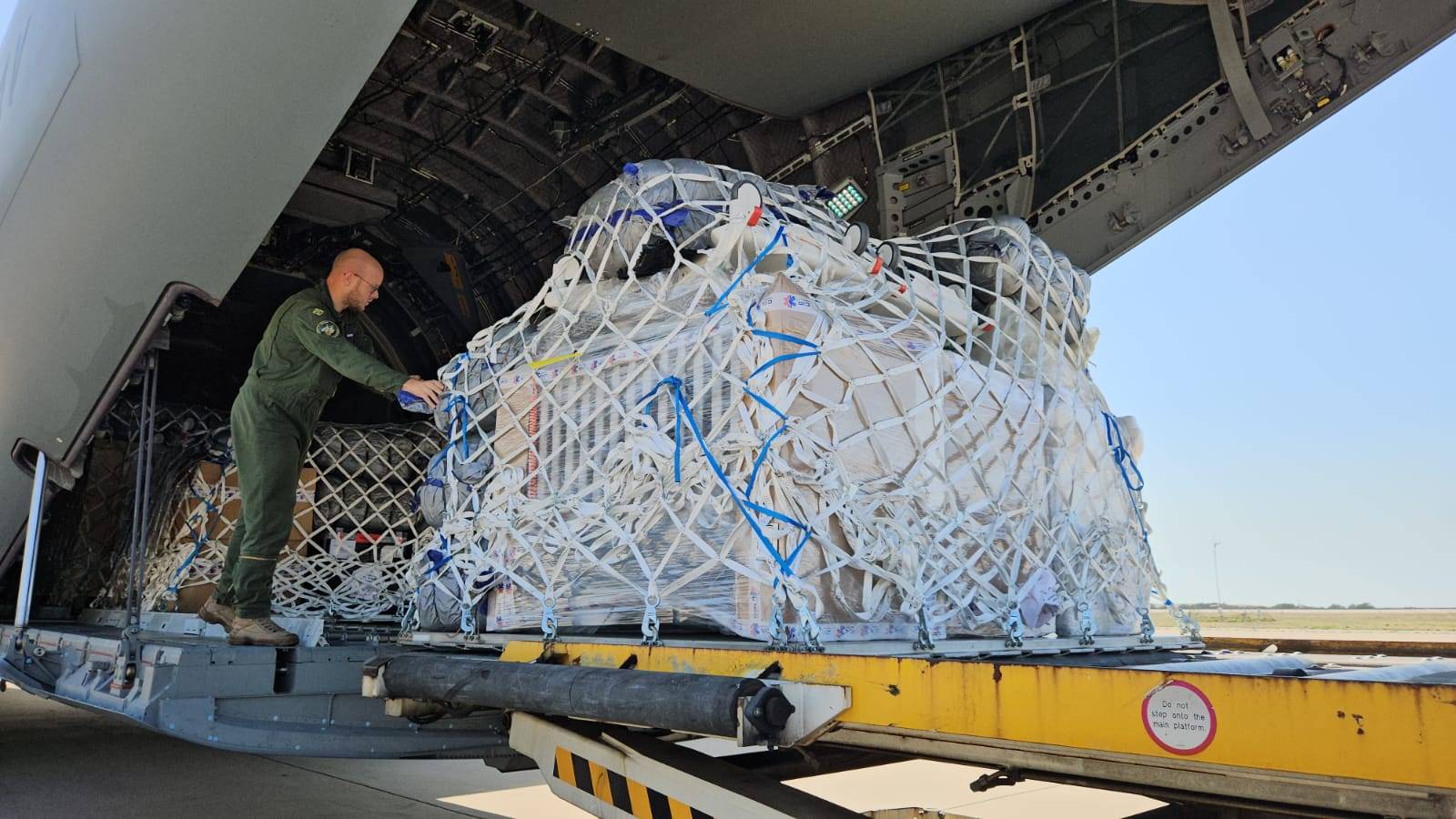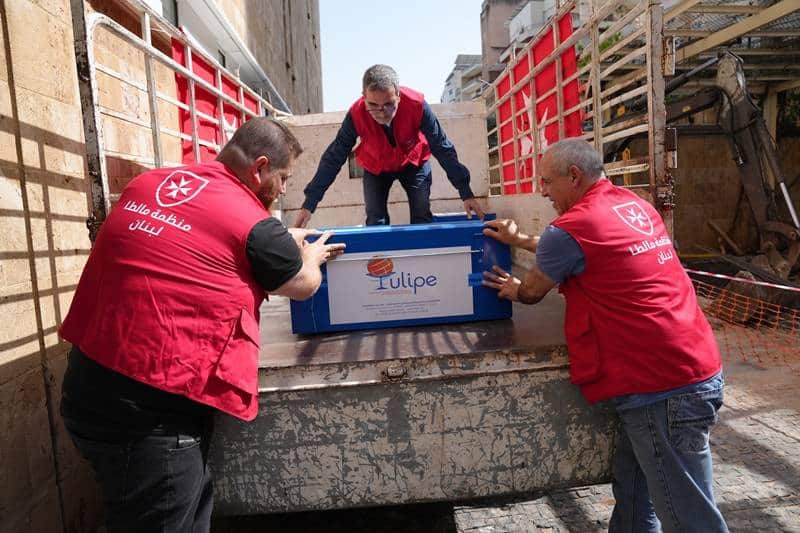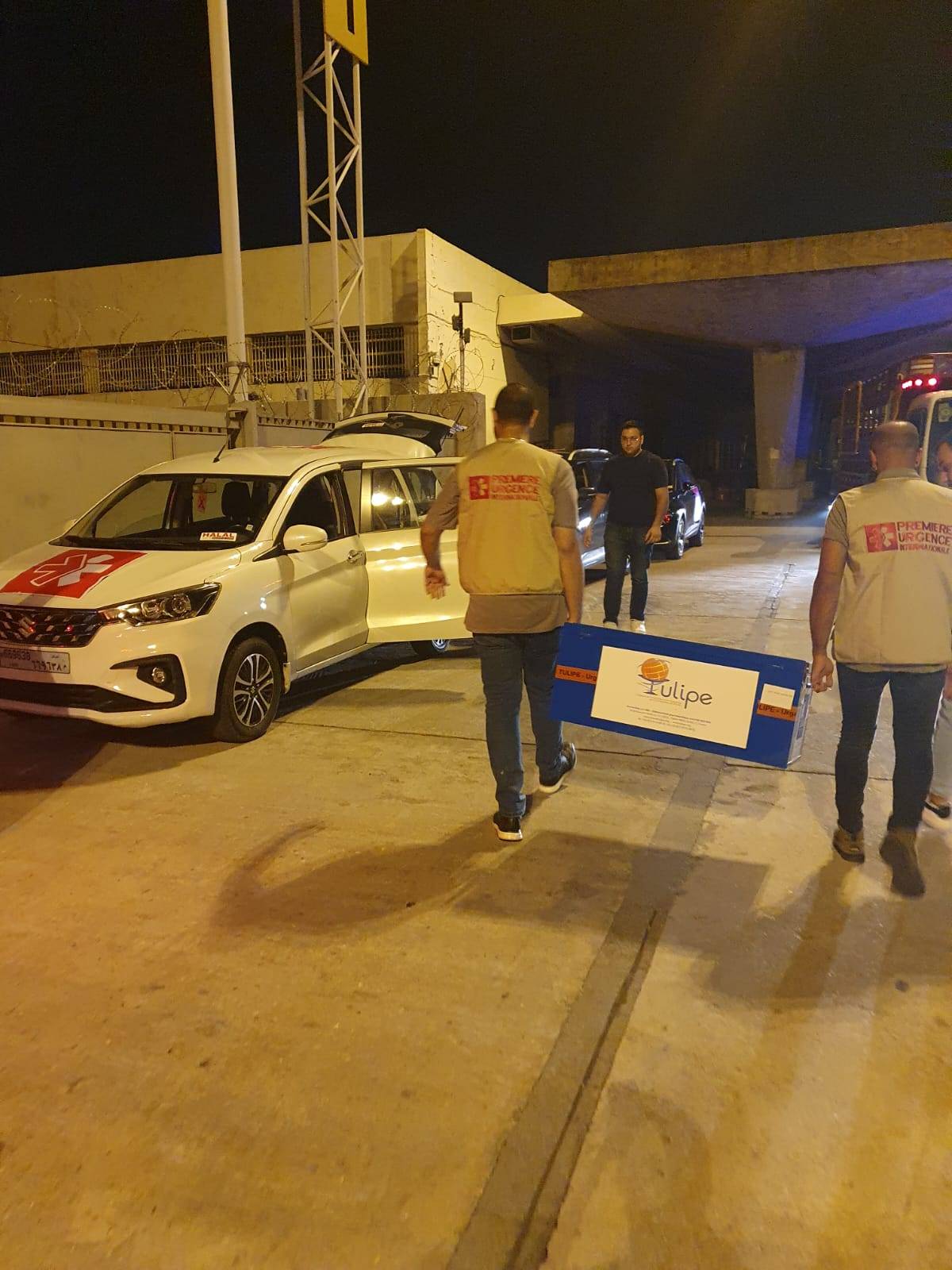[Interview] The Tulipe association entered into a partnership with the Crisis and Support Centre (CDCS) of the Ministry of Europe and Foreign Affairs in 2017. This essential service operates 24 hours a day, 7 days a week. In the event of a crisis abroad, it ensures the protection of French nationals and coordinates France’s emergency humanitarian action to help local populations. Interview with Philippe Lalliot, who has been head of the crisis and support centre (CDCS) since August 2023.
– You took up your post at the end of August. How have you dealt with the major crises that have arisen since your arrival?
– The acceleration in the pace of the crises and the increase in their severity are compounded by the fact that they overlap. At the end of August, when I took office, we had just emerged from the crisis in Niger. We then had the coup d’état in Gabon, followed by the earthquake in Morocco, the floods in Libya, the crisis in Nagorno-Karabakh and now the crisis in Israel and the Palestinian territories. This is a very high frequency of crisis. I don’t think we’ve ever seen anything like it before. These crises are of a very disparate nature, whether they be security-related, linked to natural disasters or climatic crises, and occur in very different geographies. It’s a very demanding rhythm for the teams here: around 110 people involved in both crisis management and humanitarian action. Our teams are put to the test as they work 24 hours a day, 7 days a week, in the service of others. They are all seasoned professionals and highly skilled specialists. It’s a job that requires a great deal of commitment and a high level of mobilisation, and it can only be done to the full by people who believe in their work.
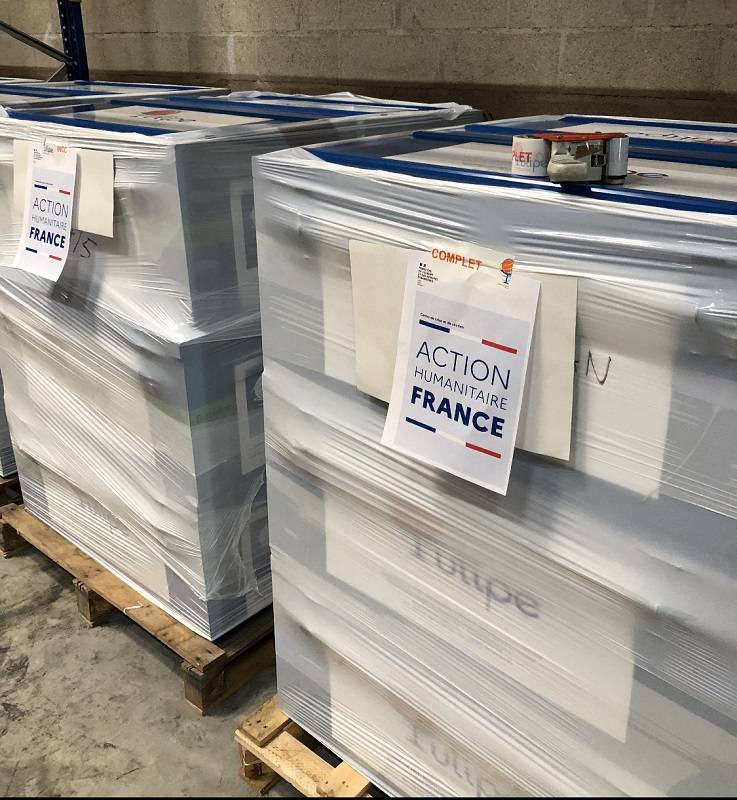
– How does the Crisis and Support Centre operate in this situation? In particular, how does it deliver humanitarian aid to the people of Gaza?
– The Crisis and Support Centre is a relatively young organisation. It is 15 years old this year. It has grown very quickly, from around thirty staff in 2008, to 60 in 2014, and 110 today. Its funding for humanitarian action has also risen sharply, reaching nearly €300m this year. This rapid growth is a reflection of the state of the world, characterised by an increase in the number and frequency of crises.
The crisis and support centre coordinates its actions closely with embassies, consulates and the ministry’s departments. It also works with the Ministry of the Armed Forces, the Ministry of the Interior and civil security, the Ministry of Health and French local authorities, as well as with NGOs, companies and their foundations.
The aim is to bring together the skills and resources of all concerned to deliver the most relevant and effective aid at any given time. To achieve this, the crisis and support centre has a monitoring unit responsible for keeping an eye on what’s happening around the world, reporting on the situation and, if necessary, triggering the necessary resources to intervene in a given place.
The Ministry works in close collaboration with its diplomatic and consular network, all our embassies and consulates general across the globe. Together, they seek to anticipate crises, analyse tense situations, decide whether to launch a crisis response mechanism and help people emerge from the crisis. This may last a few hours, a few days, several months or even several years.
To take the example of the Palestinian territories, on a strictly humanitarian level, we have several actions underway. We have transported 90 tonnes of aid to Egypt, including 54 tonnes on military flights (medical equipment and medicines, nutritional supplements, generators, solar lamps, tents, etc.) and 33 tonnes on a flight set up as part of the European Union’s humanitarian airlift, which left for Egypt on 7 November. On board were nutritional supplements donated by Nutriset. All of France’s humanitarian aid was handed over to the Egyptian Red Crescent on site, which was responsible for transporting it to Gaza, in conjunction with the various humanitarian actors, in particular the United Nations agencies. Other operations will follow.
– What were the circumstances surrounding the humanitarian operation to help the people of Nagorno-Karabakh in early October?
– On 19 September, Armenians living in Nagorno-Karabakh sought refuge in Armenia, triggering a mass exodus. This had the effect of very quickly saturating the reception and care capacities on the Armenian side.
We therefore decided that it would be useful to work with anyone who wanted to, starting with the Tulipe association, to set up an emergency humanitarian operation. This operation involved the deployment of a mobile health post. This is a consignment of medical equipment and emergency medicines. There are several sizes of MSP, and the one donated to Armenia enabled 250 seriously injured people to be treated. This shipment was supplemented by Tulipe’s donation of 40 trunks of general and emergency medicines for adults and children. Some of the trunks of Tulipe health products were handed over by the French Minister for Europe and Foreign Affairs, Catherine Colonna, during her visit to Armenia.
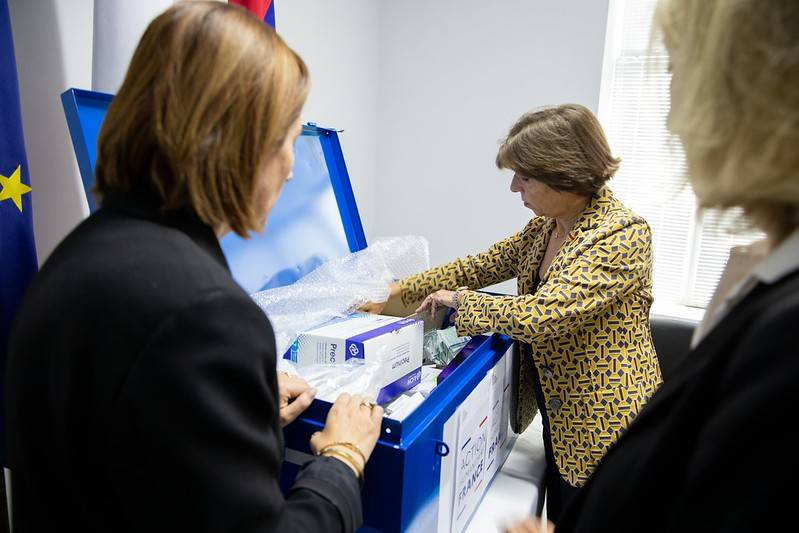
“This collaboration has become essential for the CDCS, which relies on Tulipe’s expertise and responsiveness to respond to urgent humanitarian needs” Philippe Lalliot, new Director of the Crisis and Support Centre .
– What has been the follow-up to this action, particularly for the displaced population in Armenia?
– Our recent actions in Armenia are part of a more general framework. For example, we have decided to provide additional financial aid of €7 million to NGOs, United Nations agencies and the Red Cross movement. This aid will make it possible to receive and provide medical and social care for displaced people in extremely precarious situations. This aid is in addition to the 5.5 million euros already allocated by France in 2023, for a total of 12.5 million euros.
Humanitarian aid is an initial emergency response, but it is important to extend it over time. That’s why we’re putting in place medium- and long-term stabilisation and development initiatives. These actions are being carried out by the Crisis and Support Centre of the Ministry of Europe and Foreign Affairs, the French Development Agency (AFD) and other government bodies.
These different actions are coordinated to ensure overall coherence. It’s a complex job that requires close cooperation between several departments.
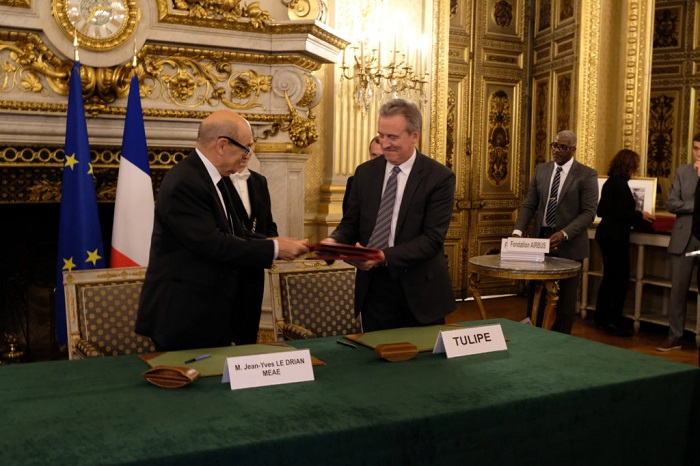
– Why did you call on Tulipe for this humanitarian cargo operation for the population of Nagorno-Karabakh and then for the Gaza operation?
– Since 2017, the Crisis and Support Centre and the Tulipe association have enjoyed a relationship that has gone from strength to strength. This collaboration has become essential for the CDCS, which relies on Tulipe’s expertise and responsiveness to respond to urgent humanitarian needs.
This partnership brings many benefits. Firstly, Tulipe provides irreplaceable assistance, as it responds perfectly to the needs of medical teams on the ground. Missions are calibrated according to the needs expressed, which guarantees the relevance of the aid provided.
Secondly, Tulipe is capable of delivering aid over long distances, even in areas that are difficult to access. Lastly, Tulipe works to the same tight deadlines as the CDCS, which means that collaboration is very fluid.
Tulipe’s responsiveness has enabled us to respond rapidly to recent crises, particularly in Nagorno-Karabakh and the Palestinian territories. As part of these operations, Tulipe supplied 58 medical trunks, the equivalent of 30,000 treatments.
The CDCS must continue and strengthen its collaboration with health professionals and NGOs. Humanitarian action can only be effective if it is collective and if everyone makes their contribution.
Philippe Lalliot, new Director of the Crisis and Support CentrePhilippe Lalliot began his career in 1996 in the legal affairs department of the Quai d’Orsay before being seconded to the Prime Minister’s office in 1999, to the General Secretariat for European Affairs. From 2001, he was First Secretary in Washington and then Second Counsellor at France’s Permanent Representation to the European Union in Brussels, before returning to the Quai d’Orsay as Chargé de Mission to the Secretary General. Between 2009 and 2013, Philippe Lalliot was Consul General of France in New York, then Director of Communication and Press, Spokesman for the Ministry of Foreign Affairs. He was appointed ambassador and permanent delegate of France to UNESCO in 2013 and, in 2016, ambassador to the Netherlands and permanent representative of France to the Organisation for the Prohibition of Chemical Weapons. He has been France’s ambassador to Senegal and the Gambia since September 2019. A graduate of the Ecole Normale Supérieure and the Ecole Nationale d’Arques, Philippe Lalliot holds a degree in economics and social sciences. He also holds a master’s degree in administrative sciences and a master’s degree in French literature. He has lectured at Sciences Po and ENA. |
